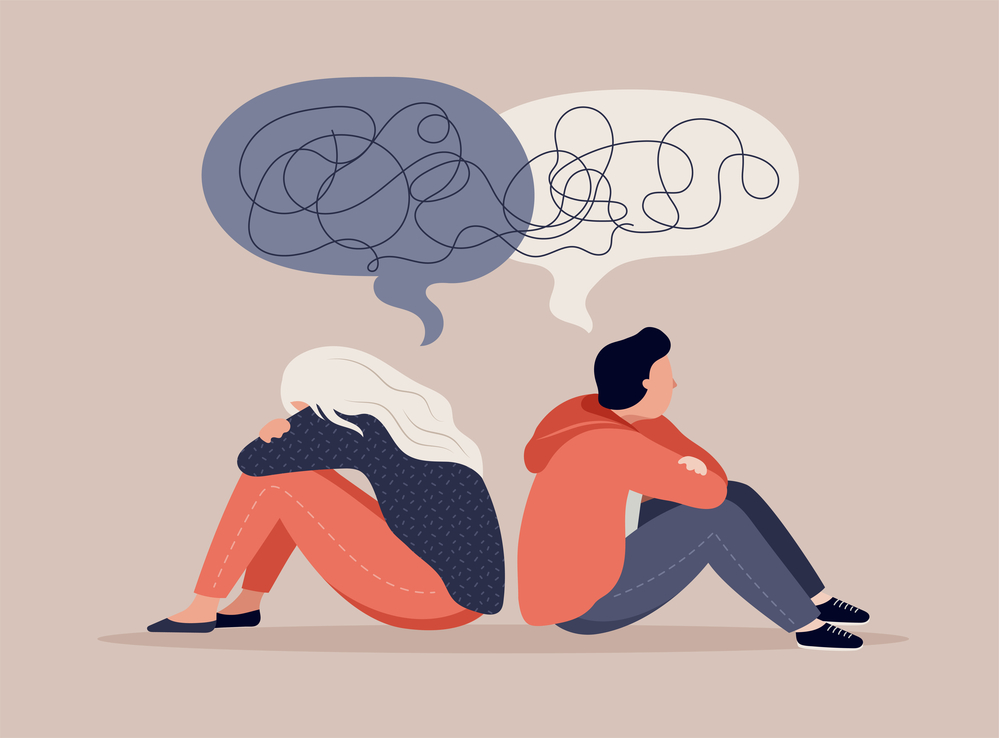You’ve probably heard ofAttention Deficit Hyperactivity Disorder (ADHD), but have you heard of ADHD fatigue? ADHD is commonly associated with symptoms like inattention, hyperactivity, and impulsivity. However, one less-discussed but equally impactful symptom is ADHD fatigue. Many individuals with ADHD experience chronic tiredness, low energy levels, and mental exhaustion, which can significantly affect their daily functioning and quality of life. This comprehensive guide delves into the causes of ADHD fatigue, its symptoms, and practical strategies for managing it effectively.
Table of Contents
ToggleWhat Is ADHD Fatigue?
ADHD fatigue refers to the persistent feeling of tiredness and lack of energy that many people with ADHD experience. It’s not just physical exhaustion but also mental fatigue that affects concentration, motivation, and overall cognitive functioning.
Key Characteristics of ADHD Fatigue:
- Chronic Tiredness: Feeling tired even after adequate sleep.
- Mental Exhaustion: Difficulty concentrating, forgetfulness, and brain fog.
- Emotional Drain: Increased irritability, mood swings, and feelings of overwhelm.
- Physical Symptoms: Muscle aches, headaches, and general lethargy.
Expert Insight
Dr. Emily Clarke, a psychiatrist specializing in ADHD, explains, “ADHD fatigue is a multifaceted issue that arises from the constant mental effort required to manage ADHD symptoms. The brain is working overtime to regulate attention and behavior, leading to significant energy depletion.”
Causes of ADHD Fatigue
Understanding the underlying causes of ADHD fatigue is crucial for effective management. Several factors contribute to this condition:
- Executive Function Deficits
- Description: Individuals with ADHD often struggle with executive functions like planning, organizing, and task initiation.
- Impact on Fatigue: The extra mental effort required to perform everyday tasks can lead to mental exhaustion.
- Example: Remembering deadlines or organizing a work schedule may require more energy for someone with ADHD than for others.
- Sleep Disturbances
- Description: ADHD is associated with various sleep problems, including insomnia, restless sleep, and delayed sleep phase syndrome.
- Impact on Fatigue: Poor sleep quality leads to daytime sleepiness and reduced cognitive performance.
- Data Point: A study published in the Journal of Attention Disorders found that up to 73% of adults with ADHD experience sleep disturbances.
- Hyperfocus and Mental Overexertion
- Description: Hyperfocus is an intense concentration on a single task for extended periods.
- Impact on Fatigue: While hyperfocus can be productive, it often leads to neglecting basic needs like eating and resting, resulting in burnout.
- Case Study: Alex, a college student with ADHD, often spent hours on graphic design projects without breaks, leading to severe fatigue.
- Emotional Regulation Challenges
- Description: ADHD can make it difficult to regulate emotions, leading to heightened stress and anxiety.
- Impact on Fatigue: Chronic stress activates the body’s stress response, consuming significant energy resources.
- Expert Insight: Dr. Laura Martinez notes, “Emotional dysregulation in ADHD can be mentally draining, contributing to overall fatigue.”
- Medication Side Effects
- Description: Stimulant medications commonly prescribed for ADHD can have side effects like insomnia and decreased appetite.
- Impact on Fatigue: These side effects can exacerbate feelings of tiredness and low energy.
- Advice: Always consult a healthcare provider about side effects to adjust medication if necessary.
- Lifestyle Factors
- Description: Poor diet, lack of exercise, and irregular routines can worsen fatigue.
- Impact on Fatigue: Unhealthy habits fail to provide the necessary nutrients and physical activity to maintain energy levels.
- Actionable Tip: Incorporate balanced meals and regular exercise into daily routines.
Symptoms of ADHD Fatigue
Recognizing the symptoms of ADHD fatigue is the first step toward managing it effectively.
Common Symptoms Include:
- Persistent Tiredness: Feeling tired despite adequate rest.
- Difficulty Concentrating: Struggling to focus on tasks or conversations.
- Memory Problems: Forgetfulness and difficulty recalling information.
- Irritability: Increased sensitivity to stressors and frustration.
- Lack of Motivation: Difficulty initiating or completing tasks.
- Physical Discomfort: Headaches, muscle aches, and general malaise.
Case Study
Maria’s Experience: Maria, a 28-year-old marketing professional with ADHD, found herself constantly exhausted. Despite sleeping eight hours a night, she woke up feeling unrefreshed. At work, she struggled to concentrate and became easily irritated with colleagues. Recognizing these symptoms as ADHD fatigue, Maria sought professional help to develop a management plan.
The Impact of ADHD Fatigue on Daily Life
ADHD fatigue can significantly affect various aspects of an individual’s life, including:
- Work Performance
- Challenges: Reduced productivity, difficulty meeting deadlines, and decreased job satisfaction.
- Solution: Implementing organizational tools and seeking workplace accommodations.
- Academic Achievement
- Challenges: Struggling with concentration during lectures, difficulty studying, and poor academic outcomes.
- Solution: Utilizing academic support services and time management strategies.
- Relationships
- Challenges: Irritability and emotional exhaustion can strain personal relationships.
- Solution: Open communication with loved ones about challenges and involving them in coping strategies.
- Mental Health
- Challenges: Increased risk of anxiety, depression, and low self-esteem.
- Solution: Seeking therapy to address co-occurring mental health issues.
Expert Insight
Dr. Michael Reynolds emphasizes, “ADHD fatigue doesn’t just make you tired; it affects your entire life. Understanding its impact is crucial for developing effective coping mechanisms.”
Strategies for Managing ADHD Fatigue
Effective management of ADHD fatigue involves a combination of medical interventions, lifestyle changes, and supportive therapies.
- Medical Interventions
- Medication Review
- Action: Consult your healthcare provider to evaluate current medications and dosages.
- Reason: Adjusting medication can reduce side effects that contribute to fatigue.
- Treatment of Sleep Disorders
- Action: Address sleep issues with a specialist.
- Reason: Improving sleep quality can significantly reduce daytime fatigue.
- Cognitive Behavioral Therapy (CBT)
- Description: A form of psychotherapy that helps modify negative thought patterns and behaviors.
- Benefits: CBT can improve emotional regulation and reduce stress, alleviating fatigue.
- Case Study: Tom, a 35-year-old engineer, used CBT techniques to manage his stress and noticed a significant decrease in his fatigue levels.
- Mindfulness and Relaxation Techniques
- Mindfulness Meditation
- Action: Practice mindfulness exercises to enhance focus and reduce stress.
- Benefit: Improves attention span and reduces mental exhaustion.
- Deep Breathing Exercises
- Action: Incorporate deep breathing into daily routines.
- Benefit: Lowers stress hormones and conserves energy.
- Time Management and Organizational Skills
- Use of Planners and Apps
- Action: Utilize calendars, to-do lists, and reminder apps.
- Benefit: Reduces the mental load of remembering tasks, decreasing fatigue.
- Break Tasks into Smaller Steps
- Action: Divide larger projects into manageable parts.
- Benefit: Prevents overwhelm and conserves mental energy.
- Lifestyle Modifications
- Regular Exercise
- Action: Engage in physical activities like walking, yoga, or cycling.
- Benefit: Increases energy levels and improves sleep quality.
- Balanced Diet
- Action: Incorporate whole grains, lean proteins, fruits, and vegetables.
- Benefit: Provides sustained energy and supports brain health.
- Consistent Sleep Schedule
- Action: Establish regular bedtime and wake-up times.
- Benefit: Regulates the body’s internal clock, improving sleep quality.
- Social Support
- Join Support Groups
- Action: Participate in ADHD support groups.
- Benefit: Sharing experiences can reduce feelings of isolation and provide practical tips.
- Communicate with Loved Ones
- Action: Explain your fatigue to family and friends.
- Benefit: Builds understanding and fosters a supportive environment.
Expert Insight
Dr. Sarah Thompson advises, “Combining medical treatment with lifestyle changes offers the best outcomes. It’s about creating a balanced approach that addresses both the symptoms and the root causes of ADHD fatigue.”
FAQs About ADHD Fatigue
Q1: Is ADHD fatigue the same as chronic fatigue syndrome (CFS)?
A: No, while both involve persistent tiredness, ADHD fatigue is specifically related to the mental and physical exhaustion resulting from ADHD symptoms. CFS is a separate medical condition characterized by extreme fatigue not improved by rest.
Q2: Can stimulant medications for ADHD cause fatigue?
A: While stimulants typically increase alertness, some individuals may experience a “crash” as the medication wears off, leading to fatigue. Adjusting the dosage or timing with a healthcare provider can help mitigate this.
Q3: Does diet affect ADHD fatigue?
A: Yes, a diet high in sugar and processed foods can lead to energy spikes and crashes. A balanced diet supports steady energy levels throughout the day.
Q4: How does exercise influence ADHD fatigue?
A: Regular physical activity boosts endorphins, improves sleep quality, and increases overall energy levels, helping to combat fatigue.
Q5: Can ADHD fatigue be completely eliminated?
A: While it may not be entirely eliminated, effective management strategies can significantly reduce symptoms and improve quality of life.
Data and Research Supporting Management Strategies
- Exercise and ADHD: A study in The Journal of Pediatrics found that daily physical activity improved cognitive performance and reduced fatigue in children with ADHD.
- Mindfulness Benefits: Research published in Clinical Psychology Review indicates that mindfulness practices can enhance attention and reduce stress in individuals with ADHD.
- Sleep Interventions: The Sleep Medicine Clinics journal highlights that cognitive-behavioral therapy for insomnia (CBT-I) effectively improves sleep quality in adults with ADHD.
Actionable Takeaways
- Consult a Healthcare Professional
- Schedule an Evaluation: Discuss fatigue symptoms with your doctor.
- Medication Adjustment: Explore options to optimize medication efficacy and reduce side effects.
- Prioritize Sleep Hygiene
- Create a Sleep-Conducive Environment: Keep your bedroom dark, quiet, and cool.
- Establish a Bedtime Routine: Engage in calming activities before sleep, such as reading or taking a warm bath.
- Incorporate Regular Physical Activity
- Choose Enjoyable Exercises: Whether it’s dancing, swimming, or hiking, pick activities you enjoy to stay motivated.
- Set Realistic Goals: Start with manageable durations and gradually increase.
- Adopt a Balanced Diet
- Meal Planning: Prepare meals in advance to ensure healthy choices.
- Stay Hydrated: Dehydration can exacerbate fatigue.
- Practice Mindfulness and Stress Reduction Techniques
- Daily Meditation: Even five minutes a day can make a difference.
- Use Apps: Consider apps like Headspace or Calm for guided sessions.
- Utilize Organizational Tools
- Digital Calendars and Reminders: Sync across devices for consistency.
- Task Lists: Prioritize tasks to focus on what’s most important.
- Seek Support
- Therapy: Work with a psychologist or counselor experienced in ADHD.
- Support Groups: Connect with others who understand your experiences.
Case Study
David’s Transformation: David, a 40-year-old graphic designer, struggled with ADHD fatigue that affected his work and personal life. By implementing a comprehensive plan that included medication adjustments, CBT, regular exercise, and mindfulness meditation, David experienced a significant reduction in fatigue. He reported improved concentration, higher productivity at work, and better relationships with his family.
The Role of Renew Health in Managing ADHD Fatigue
At Renew Health, we understand the complexities of ADHD and its associated fatigue. Our comprehensive approach includes:
- Personalized Treatment Plans: Tailored to your specific needs and lifestyle.
- Expert Team: Psychiatrists, psychologists, and therapists specializing in ADHD.
- Integrated Therapies: Combining medical treatment with cognitive-behavioral strategies and lifestyle coaching.
- Supportive Environment: Providing a safe space to explore challenges and celebrate progress.
Expert Insight
Dr. Robert Williams, a leading psychiatrist at Renew Health, states, “Our goal is to empower individuals with ADHD to manage fatigue effectively, enhancing their overall quality of life. Through personalized care and evidence-based practices, we help our patients thrive.”
Conclusion
ADHD fatigue is a real and challenging aspect of living with ADHD, but it doesn’t have to control your life. By understanding its causes and recognizing the symptoms, you can take proactive steps to manage fatigue effectively. Combining medical interventions with lifestyle changes and therapeutic support offers the best chance for improvement.
Remember, you’re not alone in this journey. Professional help is available, and with the right strategies, you can regain your energy and enhance your daily functioning.
Take the Next Step with Renew Health
If you’re struggling with ADHD fatigue, Renew Health is here to help. Our dedicated team of professionals is committed to providing compassionate, comprehensive care tailored to your needs.




